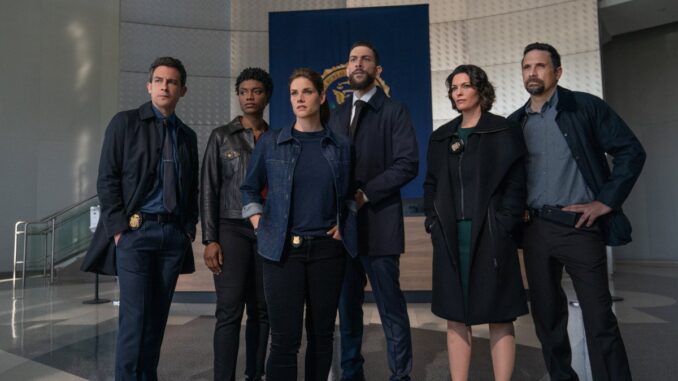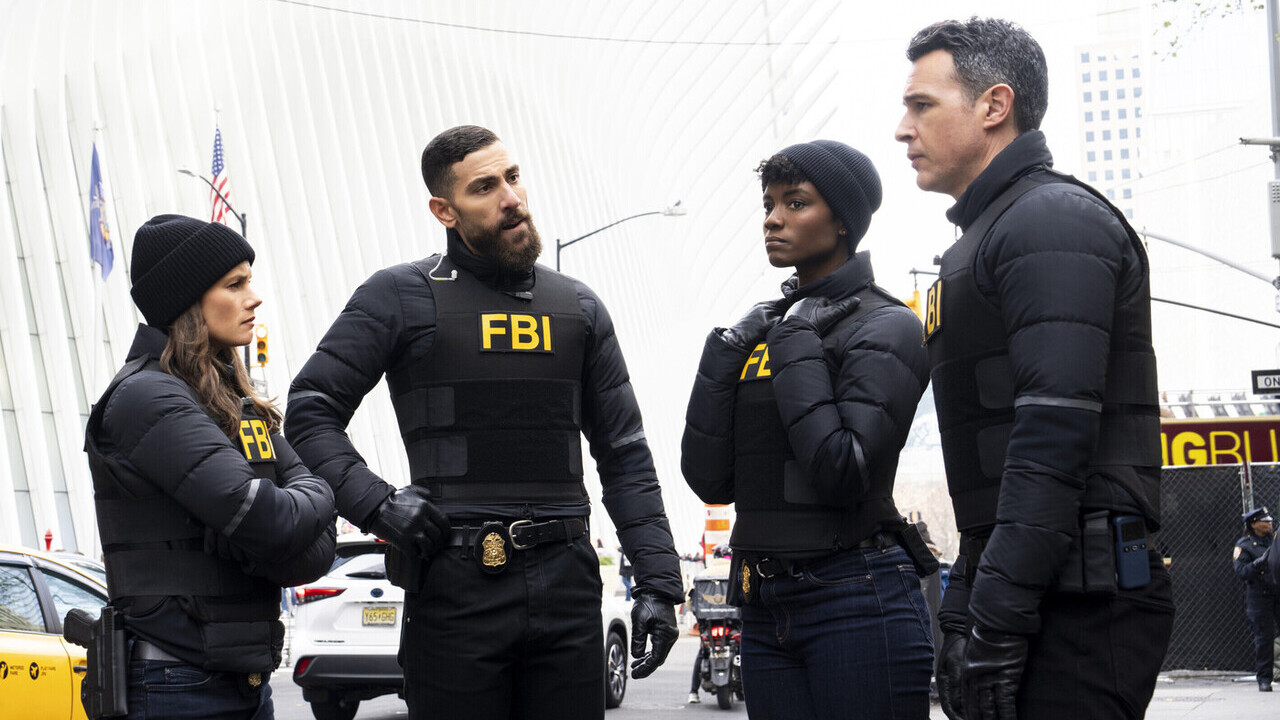
Introduction: The Show That Silently Took the Crown
For years, Dick Wolf was synonymous with Law & Order and One Chicago. These franchises practically defined procedural television — stories of justice, teamwork, and moral conflict wrapped in episodic brilliance. But after FBI’s Season 7 finale, it’s undeniable: the torch has officially been passed.
FBI didn’t just end its seventh season with a bang; it delivered an emotional, character-driven, and narratively tight finale that outclassed its sister shows. It’s the kind of TV storytelling that proves procedurals can evolve — and FBI is leading that evolution.
The Rise of FBI: From Underdog to Top of the Pack
When FBI premiered in 2018, it faced skepticism. Could another Dick Wolf procedural possibly stand out amid giants like SVU or Chicago P.D.? The answer, as it turns out, is a resounding yes.
Over the years, the series has refined its formula — combining the intensity of Law & Order, the heart of One Chicago, and a fresh post-9/11 realism. The result is something familiar yet new — a reinvention of the procedural genre that modern audiences crave.
Why Season 7 Changed Everything
Season 7 didn’t just continue the story — it elevated it. Every episode felt tighter, the stakes higher, and the emotional weight heavier. By the finale, fans were emotionally exhausted but deeply satisfied — the perfect combination for lasting impact.
The finale brought all the major storylines to a head: loyalty, loss, and the moral gray areas of federal justice. It was storytelling at its sharpest — layered, unpredictable, and profoundly human.
Character Depth: The Secret Weapon of FBI
Procedurals live and die by their characters. And this is where FBI has truly outdone itself.
Agents like Maggie Bell (Missy Peregrym) and Omar Adom “OA” Zidan (Zeeko Zaki) aren’t just cogs in a crime-solving machine — they’re complex individuals carrying the emotional scars of their jobs. Unlike the more archetypal heroes of Law & Order, the FBI team feels raw and real.
Their chemistry, trust, and moments of doubt make every mission more than just a case — it’s a moral and emotional battle.
The Finale’s Emotional Core: Not Just Another Case Closed
The Season 7 finale wasn’t about explosions or car chases — it was about sacrifice and accountability. The narrative didn’t wrap things up neatly, either. It forced characters (and viewers) to confront uncomfortable truths about justice, corruption, and what it means to serve the country from within its most powerful agency.
That complexity is what elevates FBI beyond its peers. It doesn’t rely on shock value; it builds emotional resonance.
Why Law & Order Can’t Compete Anymore
Let’s face it — Law & Order will always be iconic. But after decades on the air, its formula feels predictable. The courtroom drama is still compelling, yet it lacks the visceral immediacy that FBI now delivers weekly.
Where Law & Order thrives on moral debate, FBI thrives on emotional immersion — the kind that makes you feel the stakes of every decision.

One Chicago vs. FBI: The Battle for Heart and Heat
One Chicago has always been about camaraderie — firefighters, doctors, and cops united by shared struggle. But lately, the interconnected storylines have started to feel bloated.
Meanwhile, FBI keeps things lean. Each storyline feels purposeful, every twist intentional. It’s a procedural that respects your time without sacrificing depth.
And unlike One Chicago, FBI’s characters don’t just survive chaos — they transform because of it.
FBI’s Storytelling Strategy: Fast-Paced but Deep
One of FBI’s greatest strengths lies in its pacing. Episodes unfold like puzzles — quick, smart, and methodical. But behind that speed lies a surprising depth of emotion.
Every interrogation, every chase, every whispered confession — it all builds toward something meaningful. This is storytelling that rewards attention and emotional investment.
The Power of Real-World Relevance
Unlike the more insulated worlds of Law & Order or Chicago Fire, FBI feels distinctly modern. The series weaves in themes of national security, surveillance, racial tension, and terrorism without ever feeling exploitative.
It doesn’t just mirror reality — it challenges it. And in today’s world, that kind of storytelling hits harder than ever.
A Cast That Grows Stronger Each Season
Missy Peregrym and Zeeko Zaki have emerged as one of television’s most dynamic duos. Their partnership feels authentic — equal parts respect and tension.
Supporting players like Jeremy Sisto, Alana De La Garza, and John Boyd elevate every episode with gravitas and humanity. The ensemble is tight, believable, and brimming with chemistry — a balance One Chicago sometimes struggles to maintain with its sprawling cast.
The Cinematic Upgrade: Why FBI Looks and Feels Different
Visually, FBI has undergone a transformation. Season 7’s direction, lighting, and camera work feel more cinematic than ever. Every scene feels deliberate — from the drone shots of New York to the close-ups that capture silent pain.
This visual upgrade isn’t just aesthetic — it’s immersive. You’re not watching an investigation; you’re living it.
FBI’s Tone: Grit Meets Heart
Unlike the procedural stoicism of Law & Order, FBI blends grit with humanity. It’s dark, yes, but not hopeless. There’s always an emotional pulse beneath the procedural structure — a reminder that justice is never black and white.
That tonal balance is why it connects so deeply with modern audiences.
Dick Wolf’s Legacy Evolved
Dick Wolf’s shows have always been about institutions — police, fire, law. But FBI adds a new layer: the institution of federal power and personal conscience.
It’s no longer just about solving crimes; it’s about questioning who gets to define justice in the first place. That shift represents Wolf’s boldest storytelling evolution in decades.
Fan Reactions: Social Media Agrees — FBI Has Taken the Throne
After the Season 7 finale, social media exploded. Fans and critics alike called it the best episode in the franchise’s history. Tweets praised the emotional writing, the moral complexity, and the jaw-dropping final twist.
Even long-time Law & Order fans admitted that FBI has become “the most consistent and compelling” Wolf series on air.
The Future: Can FBI Keep Its Crown?
With Season 8 already confirmed, the pressure is on. Can FBI maintain this momentum? All signs point to yes.
The writers have proven they can balance serialized arcs with stand-alone cases, keeping viewers hooked week after week. If the creative team continues pushing emotional and narrative boundaries, FBI might not just be Wolf’s best show — it could be one of the best procedurals ever made.
Conclusion: FBI Has Redefined What a Procedural Can Be
After seven seasons, FBI has done the impossible — it’s surpassed its predecessors not by imitation, but by innovation. It has evolved the procedural format into something emotionally intelligent, socially aware, and visually cinematic.
It’s no longer just another show about agents chasing criminals. It’s a mirror — reflecting who we are, what we fear, and what we fight for.
And that’s why, after this finale, it’s clear: FBI isn’t just another Dick Wolf success — it’s his masterpiece.
FAQs
1. What makes FBI different from Law & Order and One Chicago?
FBI focuses more on emotional realism, modern threats, and tight storytelling. It’s faster-paced and more character-driven than its counterparts.
2. Who are the main characters in FBI Season 7?
The primary cast includes Missy Peregrym as Maggie Bell, Zeeko Zaki as OA Zidan, Jeremy Sisto as Jubal Valentine, and Alana De La Garza as Isobel Castille.
3. Did the FBI Season 7 finale end on a cliffhanger?
Yes, but in a subtle, emotionally charged way — it wrapped certain storylines while leaving moral questions unresolved for next season.
4. Will there be an FBI Season 8?
Yes, CBS has confirmed that Season 8 is on the way, continuing the storylines that captivated fans in Season 7.
5. Why has FBI become Dick Wolf’s best procedural?
Because it merges emotional depth, modern relevance, and cinematic storytelling — offering a fresh, evolved take on the procedural format.
